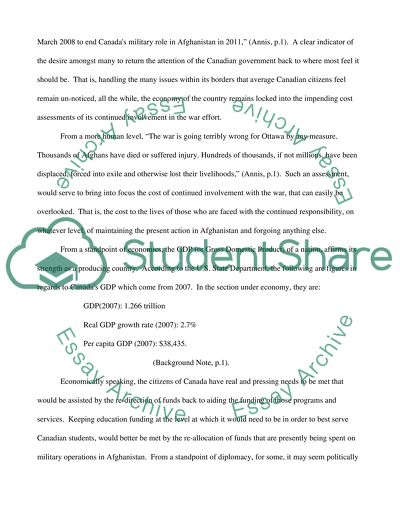Cite this document
(Canadian Involvement in Afghan War Literature review, n.d.)
Canadian Involvement in Afghan War Literature review. https://studentshare.org/politics/1519523-canadian-involvement-in-afghan-war
Canadian Involvement in Afghan War Literature review. https://studentshare.org/politics/1519523-canadian-involvement-in-afghan-war
(Canadian Involvement in Afghan War Literature Review)
Canadian Involvement in Afghan War Literature Review. https://studentshare.org/politics/1519523-canadian-involvement-in-afghan-war.
Canadian Involvement in Afghan War Literature Review. https://studentshare.org/politics/1519523-canadian-involvement-in-afghan-war.
“Canadian Involvement in Afghan War Literature Review”. https://studentshare.org/politics/1519523-canadian-involvement-in-afghan-war.


